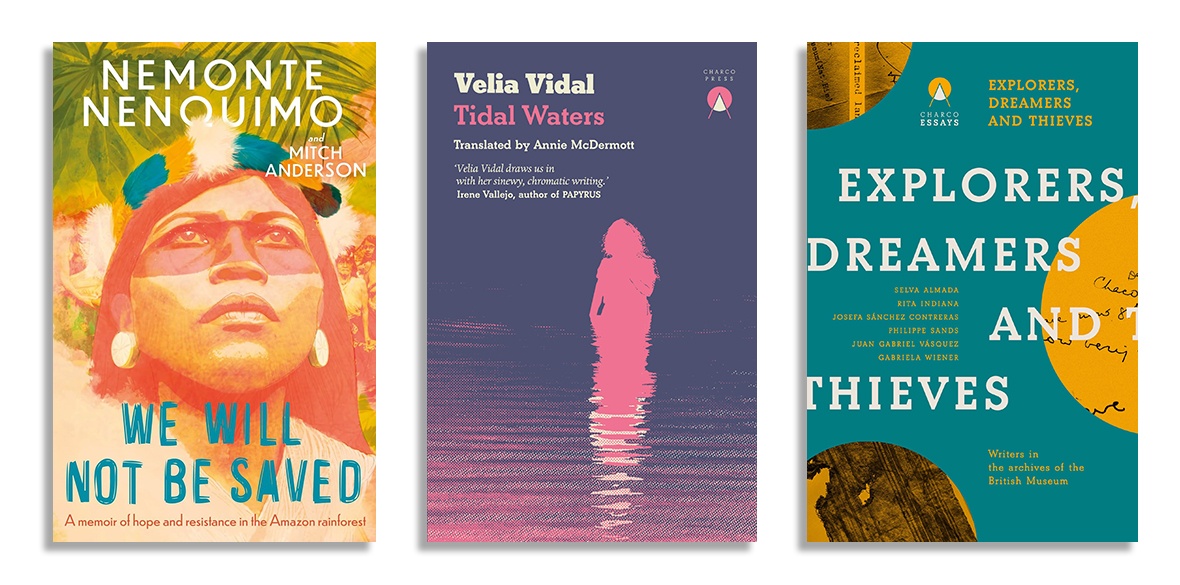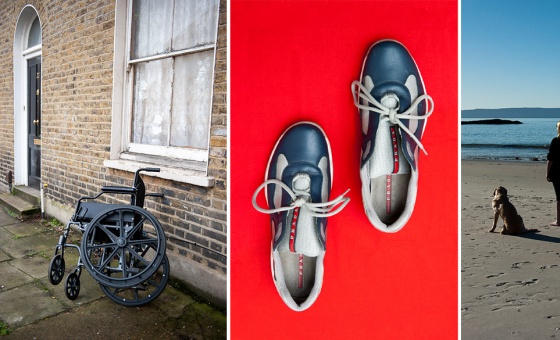This is the last article you can read this month
You can read more article this month
You can read more articles this month
Sorry your limit is up for this month
Reset on:
Please help support the Morning Star by subscribing here
WE WILL NOT BE SAVED (Wildfire, £20) by Waorani leader and activist Nemonte Nenquimo begins with the story of a young girl and her brother Victor hearing the sound of a small plane descending to a patch of land in their remote community of Tonampare, located in the Yasuni National Park in the heart of the Amazon.
The book shares the inspiring and courageous story of Nemonte and her people, the Waorani, a tribe of around 5,000 hunter-gatherers who have faced violence from state and corporate entities, especially big oil corporations like Texaco and Repsol.
It also details the abuse suffered by the Waorani at the hands of a US missionary named Rachel Saint, who attempted to force the community to convert to Catholicism and used her power to help “God-followers” — oil businessmen — exploit and destroy the ancestral lands of the Waorani.
For Nemonte and her community, the outsiders are referred to as “cowori.” They claim to want to help and bring “advancement” and “development” to Indigenous communities, but in reality they bring sickness and destruction.
The harmful contact with the cowori transforms a pristine land into a polluted, desecrated and abused area, with both its people and animals facing extinction.
Nemonte describes how she became a leader after witnessing such devastation encroach upon her lands. With the support of an activist named Mitch (Michi), with whom she eventually has two children, her activism and battle begin. She forms the Ceibo Alliance with neighbouring tribes, including the Siekopa, the Kofan, and the Siona. They initiate protests and unite, eventually challenging the major corporations in a groundbreaking court case in Quito that ultimately protects half a million acres of rainforest and establishes a precedent for Indigenous rights throughout the region.
This book goes beyond a mere story; it’s an honest portrayal of inspiring individuals, their beliefs, cosmology, stunning landscapes, and the unwavering strength of a community standing up against powerful interests and a corrupt centralised government.
After winning a legal battle in 2019, Nemonte said: “Soon, we were marching again, a herd of wild peccary, a pack of warriors, hoisting our spears, chanting above the clank of trucks, on the paved road that led to the centre of the Amazonian city of Puyo. A city that had feared our ancestors, that believed we were savages, murderous aucas who lurked in the shadows of the forest.”
Nemonte’s struggle serves as a global wake-up call: “Capitalism is a major threat because they want to exploit our resources; they are killing us and invading our home to develop the country. Our concern is global. It is not just indigenous people who are the guardians of the jungle. We are all in this together because we are all in danger.” A must-read.
Tidal Waters (Charco Press, £11.99) by Afro-Colombian writer Velia Vidal and skilfully translated by Annie McDermott, is a short book about belonging, the strong links to the Afro-Colombian community of Choco, deep friendships, and the mysteries of both the Pacific Ocean and the Caribbean.
Written as a series of letters to an unknown friend, Vidal weaves her way through a series of experiences that uncover her passion for literature, for teaching young people, and for her land, among other themes.
“It occurs to me that our feeling for each other is like the tide: we’re always there, sometimes closer — high tide — and sometimes further away — low tide — but always present. And when we see each other, we’re like fireflies. All flickering, magical, necessary for life.”
This is an engaging book, drawing you in with every page as it takes you on a literal and magical journey through Choco and the protagonist’s life. From her intimate encounters and love for the sea, to her exciting work opportunities, and finally to her passion for writing. I can’t wait to read Vidal’s next book.
Explorers, Dreamers, and Thieves: Writers in the Archives of the British Museum (Charco Press, £11.99) is a collaborative effort by Latin American writers and the British author Philippe Sands to decolonise some of the British Museum’s Latin American written archives in London.
The book includes an incisive poem by Dominican writer Rita Indiana, a wondrous journey through the Colombian jungle by writer and journalist Juan Gabriel Vazquez, an exchange of letters by two great poets written by Peruvian writer Gabriela Wiener, and the strange dream of a migrant by Argentinian Selva Almada, among others.
One of my favourite stories is The Glass Arrowhead by Sands, where he skillfully connects the Selk’nam — also known as the Ona, an Indigenous community from Tierra del Fuego in Southern Chile and Argentina — and their demise, with certain Nazis who escaped Germany and found refuge in that southern part of the world.
“The bowmen failed. The settlers prevailed. Decades later, their descendants would welcome Herr (Walther) Rauff to the lands across the Straits of Magellan, and some would embrace him. Here, the silence was great, the spirit of genocide prevailed, and the sound of impunity was touched by the winds.”
This collection of essays challenges the official narrative of a museum and its archives, making it a fascinating read.









